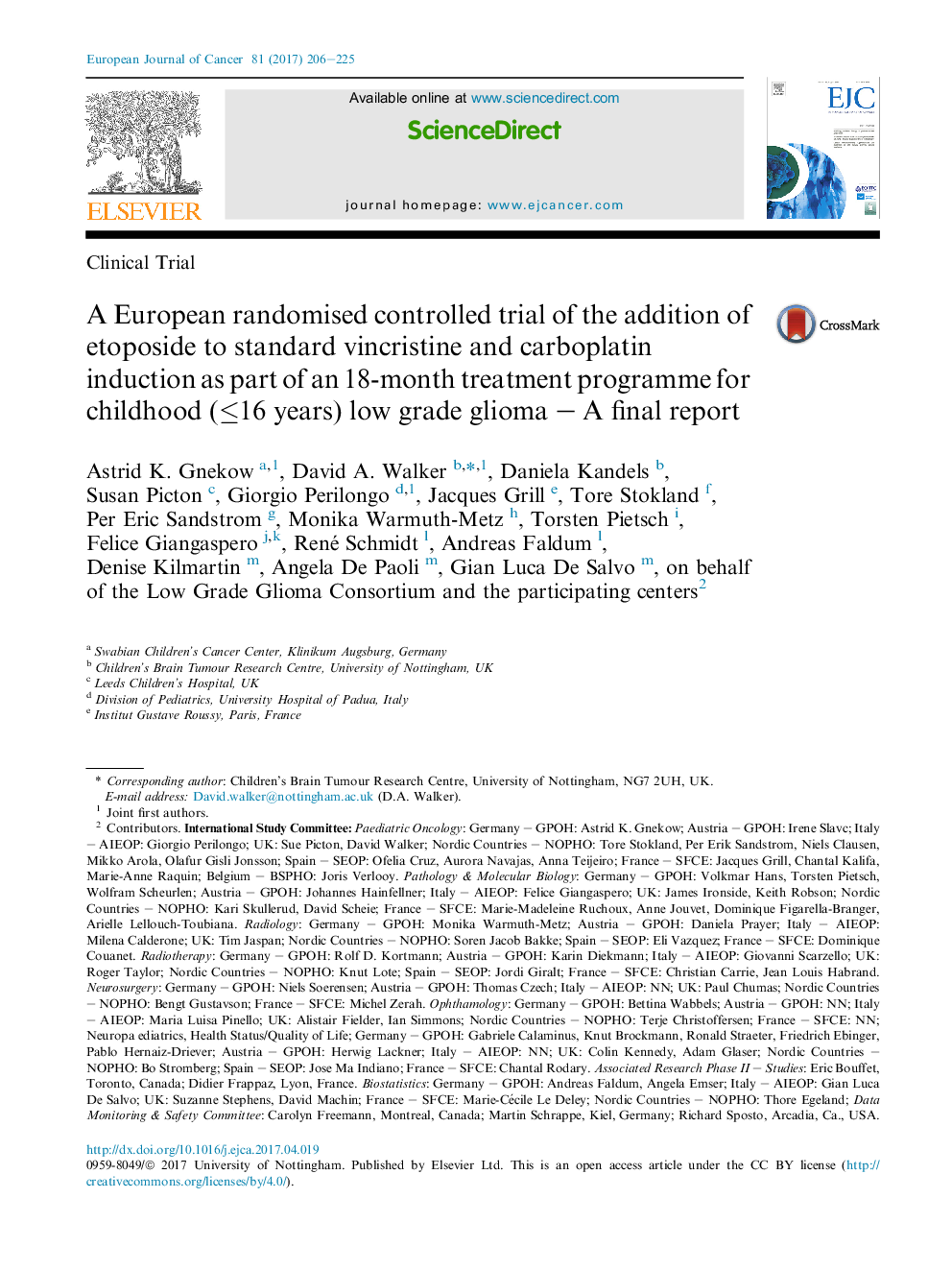| کد مقاله | کد نشریه | سال انتشار | مقاله انگلیسی | نسخه تمام متن |
|---|---|---|---|---|
| 5526600 | 1547051 | 2017 | 20 صفحه PDF | دانلود رایگان |

- A randomised trial in the commonest brain tumour type in children - low grade glioma.
- Tumour response assessment at 6Â months identifies those at greatest risk of subsequent progression and death.
- Intensifying induction treatment with etoposide does not improve progression-free survival.
- International consortium successfully recruits from 11 European countries in a childhood brain tumour.
- Carboplatin hypersensitivity is reduced by coadministration of etoposide.
BackgroundThe use of chemotherapy to manage newly diagnosed low grade glioma (LGG) was first introduced in the 1980s. One randomised trial has studied two- versus four-drug regimens with a duration of 12 months of treatment after resection.MethodsWithin the European comprehensive treatment strategy for childhood LGG, the International Society of Paediatric Oncology-Low Grade Glioma (SIOP LGG) Committee launched a randomised trial involving 118 institutions and 11 countries to investigate the addition of etoposide (100 mg/m2, days 1, 2 & 3) to a four-course induction of vincristine (1.5 mg/m2 Ã 10 wkly) and carboplatin (550 mg/m2 q 3 weekly) as part of 18-month continuing treatment programme. Patients were recruited after imaging diagnosis, resection or biopsy with progressive disease/symptoms. Some 497 newly diagnosed patients (M/F 231/266; median age 4.26 years (interquartile range (IQR) 2.02-7.06)) were randomised to receive vincristine carboplatin (VC) (n = 249) or VC plus etoposide (VCE) during induction (n = 248), stratified by age and tumour site.FindingsNo differences between the two arms were found in term of survival and radiological response. Response and non-progression rates at 24 weeks for VC and VCE, were 46% versus 41%, and 93% versus 91% respectively; 5-year Progression-Free Survival (PFS) and Overall Survival (OS) were 46% (StDev 3.5) versus 45% (StDev 3.5) and 89% (StDev 2.1) versus 89% (StDev 2.1) respectively. Age and diencephalic syndrome are adverse clinical risk factors for PFS and OS. 5-year OS for patients in early progression at week 24 were 46% (StDev 13.8) and 49% (StDev 16.5) in the two arms, respectively.InterpretationThe addition of etoposide to VC did not improve PFS or OS. High non-progression rates at 24 weeks justify retaining VC as standard first-line therapy. Infants with diencephalic syndrome and early progression need new treatments to be tested. Future trials should use neurological/visual and toxicity outcomes and be designed to discriminate between the impact on disease outcomes of 'duration of therapy' and 'age at stopping therapy'.
Journal: European Journal of Cancer - Volume 81, August 2017, Pages 206-225